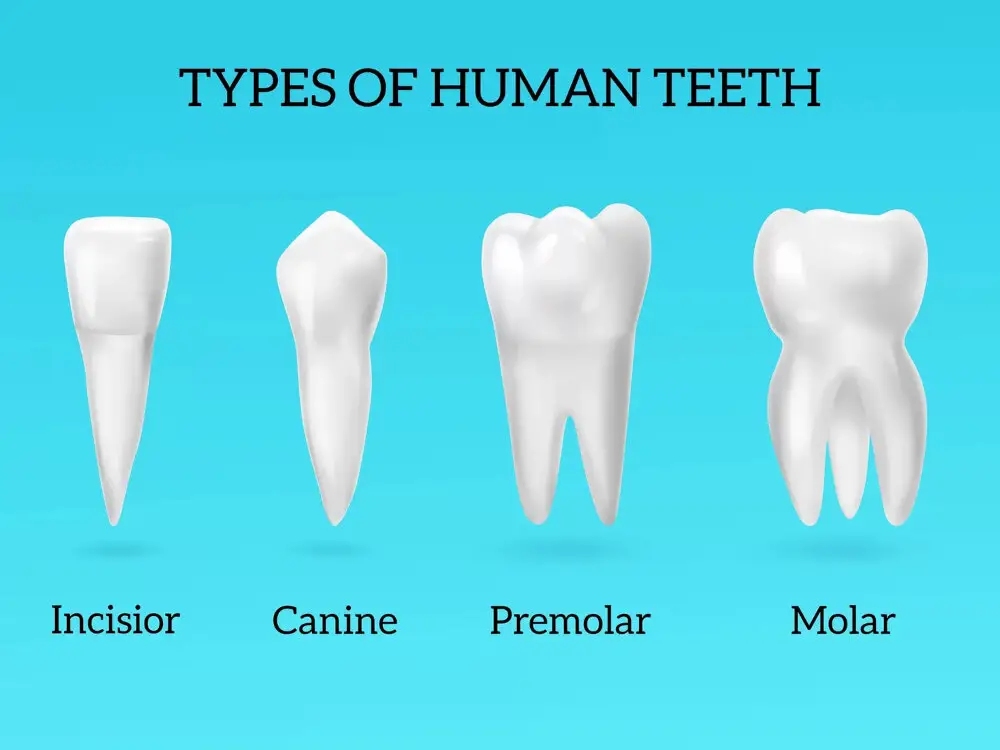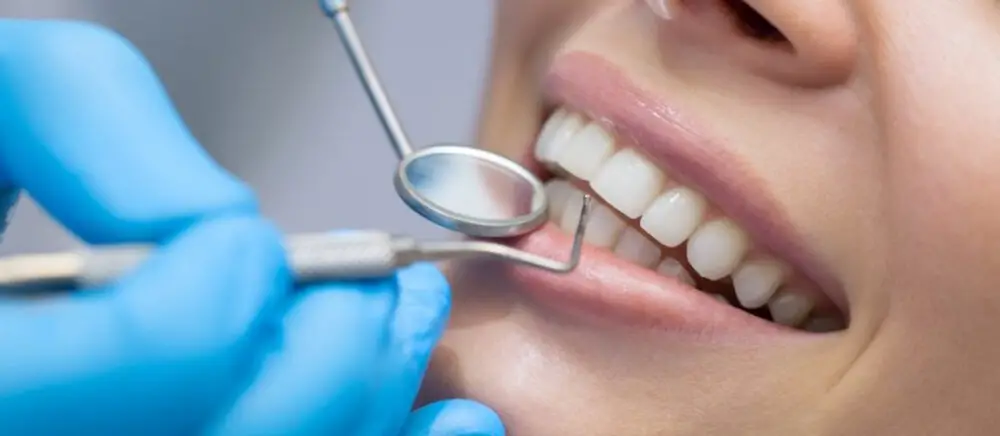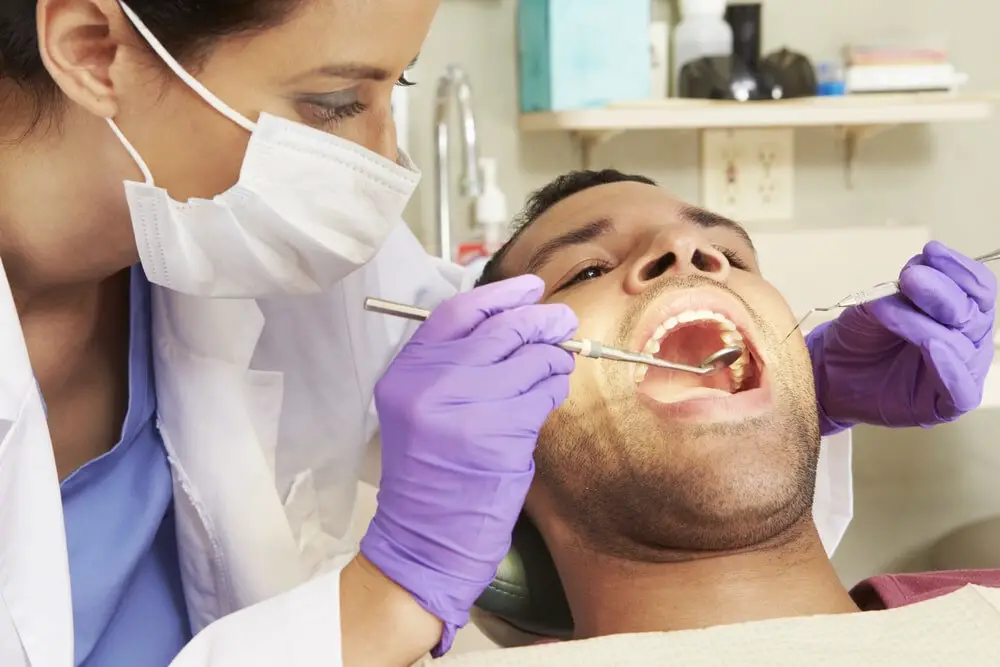Spice Up Your Diet After Wisdom Teeth Extraction: A Guide to Eating Spicy Foods Safely

Are you tired of bland and boring food after getting your wisdom teeth extracted? Do you miss the flavorful kick of your favorite spicy dishes? Well, fear not! This guide is here to help you spice up your diet safely after wisdom teeth extraction. While it’s important to follow your dentist’s instructions for post-operative care, you don’t have to sacrifice flavor for the sake of your recovery. With some careful planning and a few adjustments to your eating habits, you can enjoy the heat and flavor of spicy foods without risking damage to your healing mouth. So, let’s dive into this guide and discover how to safely incorporate spicy foods into your post-wisdom teeth extraction diet.
The extraction of wisdom teeth is a common dental procedure that involves removing one or more of the four molars located at the back of the mouth. These teeth may need to be extracted if they are causing pain, infection, or other dental problems. The procedure is typically performed by a dentist or oral surgeon under local anesthesia or sedation. Recovery time can vary, but patients are usually advised to avoid hard or crunchy foods for the first few days and to stick to soft foods that are easy to chew. In the following weeks, patients may gradually reintroduce more solid foods into their diet, but should still be cautious and avoid anything too spicy or acidic that could irritate the extraction site.
Following a soft food diet after surgery is crucial for a successful recovery. This type of diet allows your body to heal properly, without putting any strain on the surgical site. Soft foods are easy to chew and swallow, reducing the risk of complications such as bleeding or infection. They are also gentle on your digestive system, helping to prevent nausea and other discomforts. Additionally, a soft food diet ensures that you are getting the necessary nutrients to support your healing process. While it may be tempting to indulge in spicy foods, it is important to prioritize your health and stick to the recommended diet to ensure a smooth recovery.
Incorporating spice into your diet can be a game-changer, especially if you’ve always had a bland palate. Spices not only add flavor and depth to your meals but also have numerous health benefits. From boosting metabolism and aiding digestion to reducing inflammation and improving heart health, spices are a powerhouse of nutrients. However, incorporating spice into your diet requires some caution, especially after wisdom teeth extraction. It’s essential to start with mild spices and gradually increase the heat level to avoid any discomfort or irritation in the mouth. With the right approach, spicing up your diet can be a delicious and healthy way to enhance your culinary experience.
Benefits of Eating Spicy Foods

Spicy foods are not only delicious, but they also offer several health benefits. One of the most significant benefits is that they can boost your metabolism. Capsaicin, the compound that gives spicy foods their heat, has been found to increase metabolism and promote weight loss. This means that consuming spicy foods can help you burn more calories and lose weight faster. Additionally, spicy foods can also help regulate blood sugar levels, which is especially beneficial for people with diabetes. Another benefit of eating spicy foods is that they can help reduce inflammation in the body. Capsaicin has anti-inflammatory properties that can help alleviate pain and swelling associated with conditions such as arthritis and asthma. Furthermore, spicy foods can also help improve heart health by reducing cholesterol levels and promoting healthy blood flow. This can lower the risk of heart disease and other cardiovascular conditions. So, if you’re looking to spice up your diet after wisdom teeth extraction, remember that spicy foods are not only safe to eat but also offer several health benefits.
Spicy foods are known for their fiery taste and burning sensation, but did you know that they also offer numerous health benefits? Consuming spicy foods can boost metabolism, aid digestion, and reduce inflammation. Spices like chili peppers contain capsaicin, a compound that can also help alleviate pain and lower blood pressure. Additionally, spicy foods can act as natural decongestants and clear sinuses. While some may shy away from spicy foods after wisdom teeth extraction, incorporating them into your diet in a safe and controlled manner can provide a wealth of health benefits.
Spicy foods may not be the first thing that comes to mind when thinking of post-wisdom teeth extraction foods, but they can actually aid in the recovery process. Capsaicin, the compound responsible for the heat in spicy foods, has been shown to exhibit analgesic and anti-inflammatory properties. This means that consuming spicy foods can help alleviate pain and reduce swelling, two common side effects of wisdom teeth extraction. Additionally, spicy foods can stimulate the production of saliva, which helps to keep the mouth clean and aids in the healing process. Of course, it’s important to approach spicy foods with caution and to avoid anything too hot or acidic that may irritate the sensitive area.
Spices are not only great for adding flavor to your meals, but they also come with a variety of health benefits. For example, turmeric contains a compound called curcumin that is known for its anti-inflammatory properties. Cinnamon has been shown to help regulate blood sugar levels and may even have anti-cancer properties. Ginger is another spice that has anti-inflammatory effects and is commonly used for nausea relief. Cayenne pepper contains capsaicin, which can help with pain relief and may even boost metabolism. Lastly, garlic has been shown to have antibacterial, antiviral and antifungal properties, making it great for overall immune support. Adding these spices to your meals can not only make them more enjoyable to eat, but also provide a variety of health benefits.
Risks of Eating Spicy Foods After Wisdom Teeth Extraction

Wisdom teeth extraction is a common dental procedure that requires a lot of care and attention during the recovery period. One of the risks associated with eating spicy foods after wisdom teeth extraction is the potential for irritation and inflammation in the surgical site. Spicy foods contain capsaicin, which can cause a burning sensation in the mouth and exacerbate any existing discomfort or pain. The heat from spicy foods can also delay the healing process by increasing blood flow to the area, which can cause more swelling and inflammation. Additionally, the acidic nature of some spicy foods can irritate the gums and cause further discomfort. Another risk of eating spicy foods after wisdom teeth extraction is the potential for infection. The surgical site is vulnerable to bacteria and other harmful microorganisms, which can easily enter the mouth through food particles. Spicy foods can create a hospitable environment for bacteria by increasing the temperature and acidity in the mouth. Additionally, the capsaicin in spicy foods can mask the symptoms of infection by numbing the area, making it difficult to detect any potential problems. For these reasons, it is important to avoid spicy foods until the surgical site has healed and any swelling or discomfort has subsided.
Consuming spicy foods too soon after surgery can lead to potential complications. As the mouth is still in the healing process, the consumption of spicy foods can lead to irritation and inflammation, causing discomfort and pain. The capsaicin found in spicy foods can also increase blood flow and cause further swelling, delaying the healing process. Additionally, spicy foods can increase the risk of infection as they can irritate the surgical site and cause damage to the soft tissues. It is essential to proceed with caution and follow the recommended healing timeline before incorporating spicy foods back into your diet after oral surgery.
After a wisdom teeth extraction, the healing process is crucial to ensure a speedy recovery and to avoid any potential complications. Following a soft food diet initially is an essential part of the healing process, as it allows the surgical site to heal properly without any additional trauma. Soft foods are easier to chew and swallow, reducing the risk of reopening the wound or causing unnecessary pain. Additionally, spicy foods can irritate the wound and cause discomfort, making it important to avoid them until the surgical site has fully healed. A soft food diet also helps to prevent infection and reduce swelling, leading to a quicker recovery time. It is crucial to follow the post-operative instructions given by your dentist or oral surgeon to promote a successful healing process and ensure a smooth transition to a more varied diet.
After wisdom teeth extraction, it’s important to follow a soft food diet for a few days while your mouth heals. Once your dentist or oral surgeon gives you the green light to start incorporating solid foods, you can gradually begin to introduce spices into your diet. However, it’s important to start slowly and listen to your body. If you experience any discomfort or pain, it’s best to wait a few more days before trying again. Additionally, it’s recommended to avoid extremely spicy foods, such as hot peppers or hot sauce, until your mouth is fully healed to prevent irritation or inflammation. Gradually increasing the amount and intensity of spices in your diet can add flavor and variety to your meals while still prioritizing your oral health.
Tips for Safely Eating Spicy Foods

Spicy foods can be a delicious addition to any meal, but they can also cause discomfort if not consumed safely. If you have recently undergone wisdom teeth extraction, it’s important to take extra precautions when eating spicy foods. To start, it’s essential to begin with mild spices and gradually work your way up to spicier dishes. This will allow your mouth to adjust to the heat slowly and minimize any potential discomfort or irritation. Additionally, you can try to pair spicy foods with a cooling, soothing food or drink such as yogurt or milk to help alleviate any potential discomfort. Another tip for safely consuming spicy foods after wisdom teeth extraction is to avoid foods that are too acidic or salty. These types of foods can irritate the sensitive tissues in your mouth, leading to discomfort or even pain. Instead, opt for foods that are milder in flavor and texture, such as cooked vegetables or soft meats. Lastly, it’s important to take your time when eating spicy foods. Eating slowly and chewing thoroughly can help minimize any potential discomfort and allow your mouth to better handle the heat. Overall, with these tips in mind, you can enjoy spicy foods safely and comfortably after wisdom teeth extraction.
Gradually introducing spice into the diet is an essential step to take after wisdom teeth extraction. Spicy foods can cause discomfort and irritation to the sensitive areas of the mouth, leading to pain and inflammation. However, adding spice to your meals can also be a great way to enhance the flavor and nutritional value of your food. Start by incorporating mild spices such as paprika or cumin into your meals and gradually increase the intensity over time. It is also important to avoid hot and spicy foods for at least a week after the surgery to allow the mouth to heal properly. By slowly introducing spice into your diet, you can enjoy the benefits of flavorful and nutritious foods without compromising your recovery process.
Choosing the right types of spicy foods is essential after wisdom teeth extraction. Some spicy foods can contain high levels of capsaicin, a compound that can cause inflammation and irritation in the mouth, which can hinder the healing process. Opt for mild to medium spicy foods such as paprika, cumin, and turmeric, which offer a subtle kick of flavor without causing discomfort. Additionally, it’s important to avoid spicy foods that are acidic, such as tomatoes or citrus fruits, as they can irritate the mouth and delay the healing process. Experimenting with different types of spices and flavors can bring a new dimension to your meals, but it’s important to choose wisely to avoid any complications.
Preparing spicy foods after wisdom teeth extraction requires some careful considerations to ensure that you don’t irritate the surgical site and that you can still enjoy the spicy flavors you love. First, choose spices that have less heat, such as cumin or paprika, and gradually increase the amount of spice as you heal. Avoid using chili flakes or hot sauce, which can be too intense for your sensitive mouth. Second, chop or grind the spices finely to make them easier to eat. You can also mix them with other ingredients like yogurt or avocado to help soothe the spiciness. Lastly, try to avoid foods that are hard to chew or require a lot of jaw movement, like tough meats or hard vegetables. Instead, opt for softer foods like pureed soups or smoothies, which can still be packed with flavor and spice. With these tips, you can safely enjoy spicy foods while recovering from wisdom teeth extraction.
Examples of Spicy Foods to Incorporate Into Your Diet

If you are a fan of spicy foods, you do not have to give up on them after getting your wisdom teeth extracted. Incorporating spicy foods into your diet can be both safe and nutritious if you follow some precautions. Some examples of spicy foods that you can consume after wisdom teeth extraction include jalapenos, cayenne pepper, and ginger. Jalapenos are one of the most popular spicy peppers that are used in various cuisines worldwide. They contain capsaicin that is known for its anti-inflammatory properties, which can help reduce swelling and pain after wisdom teeth extraction. You can add jalapenos to your soups, stews, salads, or sandwiches to add some heat to your meals. Cayenne pepper is another excellent choice if you want to add some spice to your diet after wisdom teeth extraction. It is a potent spice that contains a compound called capsaicin that can help reduce inflammation and pain. You can add cayenne pepper to your smoothies, scrambled eggs, or roasted vegetables to give them some extra flavor and heat. Ginger is another spicy food that has been used in traditional medicine for centuries due to its anti-inflammatory properties. You can add ginger to your tea, smoothies, or stir-fries to add some heat and flavor to your meals. However, be mindful of the amount of ginger you consume as it can cause stomach upset if consumed in excess.
After having your wisdom teeth extracted, it is important to stick to a soft food diet for a few days. But who says soft foods have to be bland and boring? You can still add some spice to your meals, as long as you do it carefully. Some soft foods that can be made spicy include mashed potatoes with a kick of cayenne pepper, scrambled eggs with a sprinkle of chili flakes, or creamy avocado with a dash of hot sauce. Just remember to start with a small amount of spice and gradually increase it to avoid any discomfort. With these options, you can enjoy some heat and flavor in your meals while still maintaining a safe recovery after your wisdom teeth extraction.
After a wisdom tooth extraction, patients are often advised to stick to a soft, bland diet. However, for those who crave a little heat and spice in their food, there are safe options to satisfy their taste buds. Opting for spicy snacks and condiments that are smooth and easily digestible is key. Some safe options include hummus with cayenne pepper, guacamole with jalapeños, and salsa made with mild peppers. Additionally, adding spice to soups or broths is a great way to incorporate some heat into your diet without causing any discomfort or irritation to the extraction site. It’s important to remember to start with small amounts of spice and gradually increase, to ensure a comfortable and enjoyable eating experience.
If you’re looking for recipes for easy-to-make, spicy meals, you’re in luck! There are countless options available that can satisfy your cravings without compromising your recovery after wisdom teeth extraction. Some delicious ideas include spicy chicken tacos, cauliflower buffalo bites, or even a spicy lentil soup. Just be sure to adjust the spice level to your comfort, and avoid any crunchy or hard ingredients that may irritate your healing gums. As you explore new flavors and ingredients, remember to listen to your body and take things slowly. With a bit of caution and creativity, you can enjoy the heat without sacrificing your oral health.
Incorporating spice into the diet after wisdom teeth extraction can offer a range of benefits, such as reducing inflammation, aiding digestion, and boosting the immune system. Spices like ginger, turmeric, and cayenne pepper have anti-inflammatory properties that can help reduce pain and swelling associated with the healing process. Additionally, spicy foods can stimulate saliva production, which can help keep the surgical site clean and prevent infection. However, there are also risks to consider. Spicy foods can irritate the surgical site and cause discomfort, and some spices can interact with pain medications or cause heartburn. It’s important to start slowly and gradually increase spice intake, while also monitoring any discomfort or adverse reactions.
Incorporating spice into your postsurgery diet after wisdom teeth extraction can be a flavorful way to add variety to your meals. However, it is crucial to follow safety guidelines to avoid any complications or discomfort. Start with mild spices and gradually increase the intensity as your healing progresses. Avoid using hot sauce or spices that contain seeds or small particles that can get stuck in the extraction site. Always rinse your mouth thoroughly with saltwater after consuming spicy foods to promote healing and prevent infection. Remember, a balanced diet that includes soft, nutrient-dense foods is crucial for a smooth recovery. Consult with your dentist or healthcare provider if you have any concerns or questions about incorporating spice into your postsurgery diet.
Conclusion

In conclusion, the recovery period after wisdom teeth extraction can be challenging, especially when it comes to your diet. However, there’s no reason you should have to endure a bland and boring diet. By following the tips provided in this guide, you can safely add some spice to your meals, making them more enjoyable and flavorful. Remember to start slowly and gradually increase the spiciness level to avoid any discomfort or irritation. With a bit of caution and creativity, you can spice up your diet and make your recovery period a little more exciting. So, go ahead and enjoy some spicy foods while taking care of your oral health!







